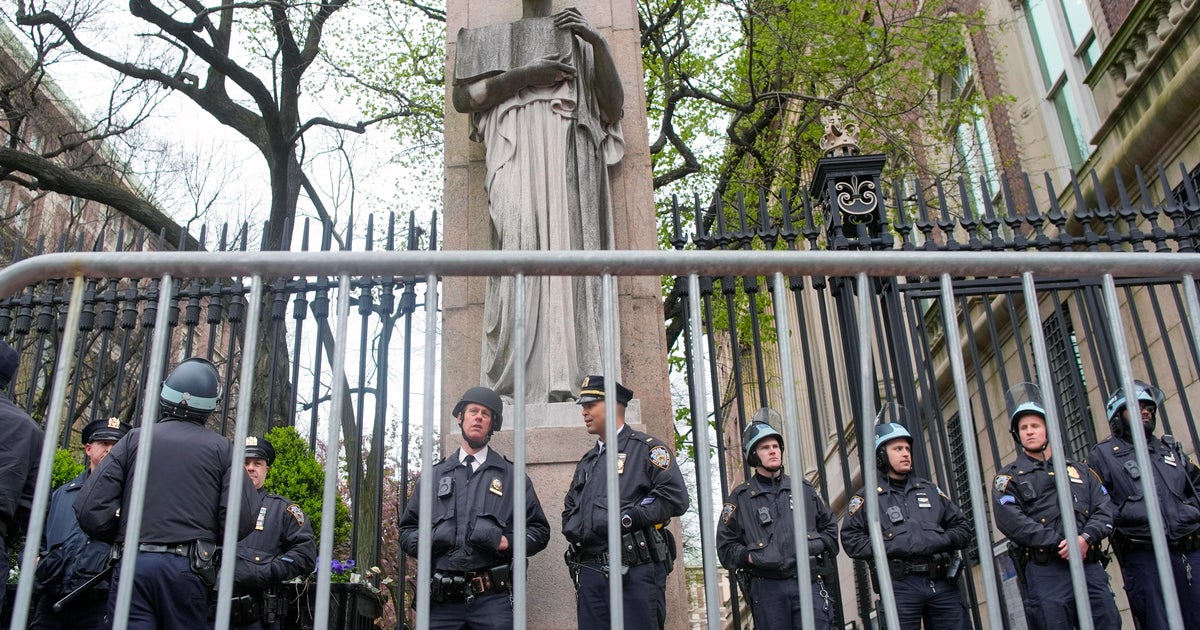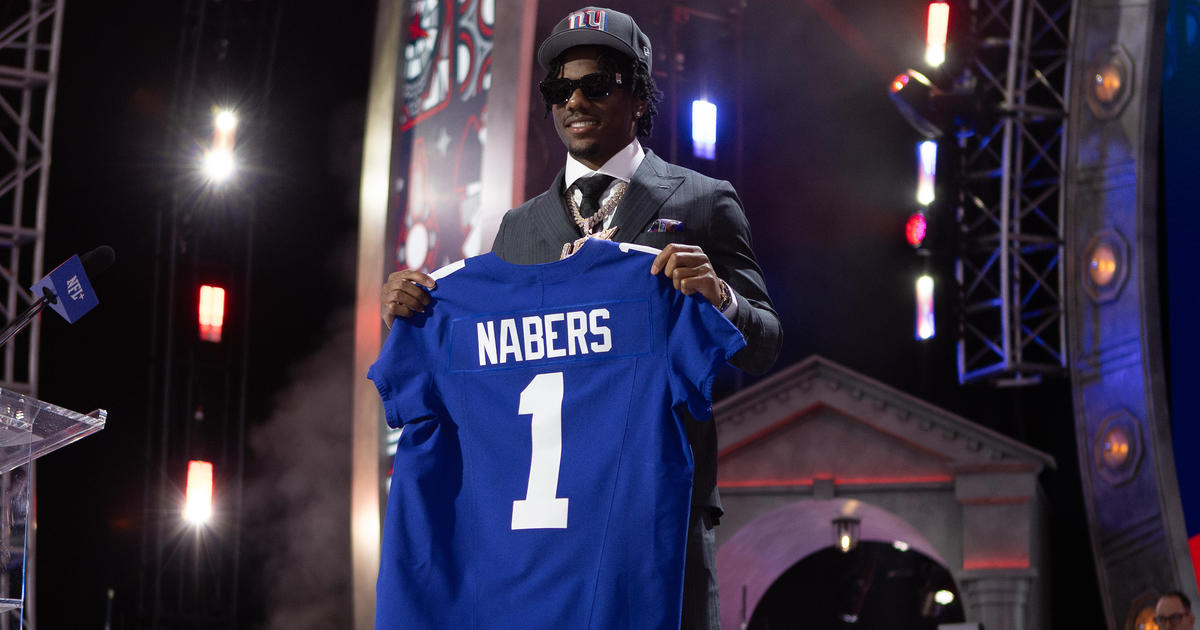NYPD Officer Says He 'Expected To Be Dead' When He Shot, Killed Ramarley Graham
NEW YORK (CBSNewYork/AP) -- A white police officer who shot an unarmed black teenager to death in the bathroom of his apartment said Friday that the last thing he wanted to do was pull the trigger.
"I thought I was about to be shot,'' Officer Richard Haste said during testimony at his departmental disciplinary trial in the 2012 death of 18-year-old Ramarley Graham. "I expected to be dead.''
Graham's family and friends, seated in the audience, cried out, "Liar!'' during Haste's testimony, prompting the administrative judge to bang the gavel and ask for order. Some cried and others left during questioning, shaking their heads.
"To see that man sit on that stand and bluntly lie, I can't understand it, I don't understand it," said Graham's mother, Constance Malcolm.
Officer Richard Haste initially faced a criminal manslaughter charge in Graham's death, but the criminal case was dismissed because of a procedural error and a new grand jury declined to indict.
Federal prosecutors also declined to bring charges, saying there was no evidence to refute Haste's claim that he shot the teen because he mistakenly believed he was reaching for a gun.
"The door got kicked in and Richard Haste rushed in and as soon as he saw Ramarley, he fired the fatal shot that killed my son," Malcolm said.
In the proceedings, the NYPD firearm discharge review board ruled the shooting itself was justified, but that Haste didn't use the proper tactics.
"If the shooting is justified, the tactics should be justified and in this case they're looking for a scapegoat because of the unfortunate outcome of the shooting," Haste's lawyer, Stuart London, said.
The shooting stemmed from an investigation of drug dealing in Graham's Bronx neighborhood.
A narcotics team had a neighborhood convenience store under surveillance. When Graham exited the shop with friends, investigators reported over their radios that they thought they saw a gun in the waistband of his pants.
On the stand, Haste recounted how he got out of his police van during a drug probe in Graham's neighborhood and followed the teenager into his apartment. He went around and got in through a neighbor's home, then unlocked the front door for other members of his team. They walked up the stairs tensely, watching for suspects and looking for cover. He said he saw Graham sidestep into a bathroom, and he leaned inside to face him.
``He's in front of me,'' he said. ``And I want to take him into custody. I want to put an end to this,'' he said. Haste yelled, ``Show me your hands!'' but Graham instead reached deeper into his pants and yelled obscenities, Haste testified.
After he pulled the trigger, he saw Graham's grandmother and little brother screaming in the hallway, and a tan boot pointed up out of the bathroom door. He was ordered outside by other officers.
No gun was found, but a bag of marijuana was floating in the toilet.
Haste said he had been in similar situations more than 10 times before but had never pulled the trigger.
Outside the trial, Graham's mother called the officer a liar for his testimony that he didn't want to fire his gun.
``He doesn't have any remorse, and he doesn't look like he had any remorse,'' Constance Malcom said. ``Every day he comes to court he have that stupid grin on his damn face.''
NYPD lawyer Beth Douglas told the judge that Haste should be fired for not following department policy. Once Graham ran into his home and locked the door, she said, the officer should have called for backup and waited for instructions from a sergeant.
Haste said he reacted using the best of his training experience from the department.
``I don't think there is a perfect world,'' he said.
Haste's attorney argued earlier that there are no specific guidelines to follow in these situations.
"What's important to remember is that these decisions were made in milliseconds," London said.
London called Haste a "hero officer who was attempting to take a weapon off the street.''
Department lawyers were expected to cross-examine Haste on Friday afternoon.
The NYPD began public hearings before an administrative judge Monday to help determine whether Haste should be fired, or face some lesser punishment, for the killing.
An administrative judge will recommend a punishment that would still need approval from the police commissioner. Haste's attorney expects a decision in the next 60 to 90 days.
(TM and © Copyright 2017 CBS Radio Inc. and its relevant subsidiaries. CBS RADIO and EYE Logo TM and Copyright 2017 CBS Broadcasting Inc. Used under license. All Rights Reserved. This material may not be published, broadcast, rewritten, or redistributed. The Associated Press contributed to this report.)



